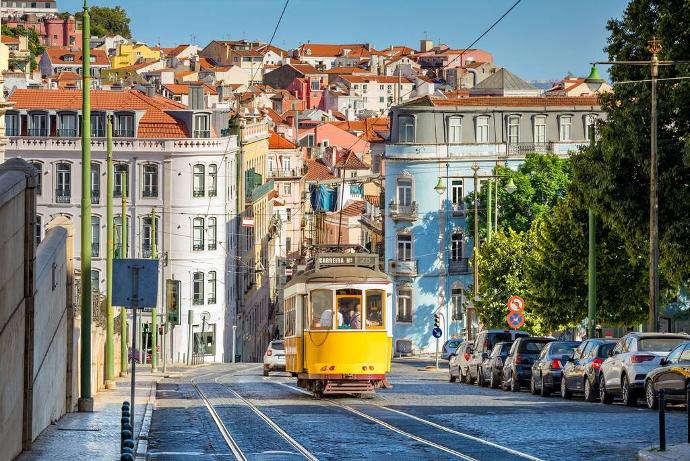
The best places in the world to retire in 2023
Despite its compact size, the country offers something for everyone. Vibrant cities like Lisbon and Porto, with their vibrant nightlife, culture, history and culinary delights. Coastal paradises along the Atlantic Ocean where camel-colored sand meets turquoise water embellished by jagged rock formations, caves and caverns. For a simpler life, head inland, where medieval villages of stone cottages hide behind crumbling castles and rolling hills of emerald farmland dominate the stunning vistas before you.
The Portuguese are among the friendliest and most genuine people in the world. They welcome strangers with open arms and embrace them with both hands. Since English is taught in schools, many locals, especially the younger generation, have a good command of the language.
Portugal is one of the safest countries in the world, ranked 6th by the Global Peace Index, so expats never have to worry about crime. Healthcare in Portugal is both affordable and excellent, ranked 12th by the World Health Organization. Residents of Portugal have access to both public and private healthcare systems, as well as facilities fully accredited by the Joint Commission International and staffed by English-speaking staff.
The infrastructure is comparable to that of the United States and Canada, with fresh drinking water on tap, reliable electricity and high-speed fiber optic Internet access that allows you to work from home or connect to the rest of the world.
The Portuguese motorway network is one of the best in Europe. It is easy to navigate and has many rest areas for eating, drinking or recharging electric car engines. Unlike other European countries which require foreigners to pass the driving test in the local language, in Portugal one only needs to exchange one's current driving license for a Portuguese one.
With over 500,000 foreigners from around the world living in Portugal, it's easy to fit in and often impossible to tell expats from locals. It's easy to make friends, especially in the cities most popular with expats, such as Porto, the Silver Coast, Lisbon and the Algarve.
To the north is Porto, Portugal's second city. Famous for its production of Port wine and its terraced vineyards along the Douro River, with a colorful waterfront, it welcomes many tourists and therefore English speakers can be found there. An international airport, one of three in the country, facilitates connections with the rest of the world. Winters in the north are rainy and cold, but snow usually only falls in the mountains.
The Silver Coast offers many opportunities for expats to live, from coastal villages to medium-sized towns like Caldas da Rainha. Daily markets in and around the historic center sell fresh fruit and vegetables, bread, meat, poultry and fish, while the weekly flea market is stocked with everything, including the kitchen sink. On the outskirts of the city, the hills are covered in lush farmland where sheep graze and farmers drive around in tractors. Silver Coast winters are cold and wet, while summers bring spring-like temperatures, without the need for air conditioning.
For those who want to live in a big car-free city, Lisbon might be just the thing for you. Bursting with museums, concerts, restaurants, shops, cobbled lanes and historic elegance, the mix of expats and tourists means English speakers are aplenty. With the city built on seven hills, hop on one of the iconic yellow trams or other public transport to get around. This is where Portugal's main international airport is located, a great way to connect to the rest of Europe or most other countries in the world.
The nearby coastal town of Cascais has long been popular with expats who sip coffee on the terraces, meet friends for wine tastings, yoga, strolls on the beach or dance the night away in the local nightclubs.
South of Lisbon is the Alentejo region, which includes the cities of Beja and Évora. It is the largest and most rural region of the country. In spring, fields of fragrant wildflowers bloom around majestic cork oaks and church bells chime in tiny historic villages. Outside of Évora, English is less spoken, so expats moving here should know Portuguese.
The Algarve is the southernmost region of the country, with over 300 days of sunshine per year. Traditional towns such as Lagos and Tavira offer old world charm with their cobbled centres, thriving cafes and large expat communities. For permanent holidays, Albufeira offers water parks, a lively strip filled with tourist shops, restaurants, pubs and beautiful beaches. Expat communities are easy to find all over the Algarve, and when you add to that the tourist crowds in the summer, expats who choose to live here can really get by knowing only English.
How much do you need to retire in Portugal? Typically, a couple can live comfortably on around $2,500 to $3,000 a month, depending on lifestyle and whether one owns or rents. To settle in Lisbon, Porto or the Algarve, expect to pay a little more, while inland areas cost less.